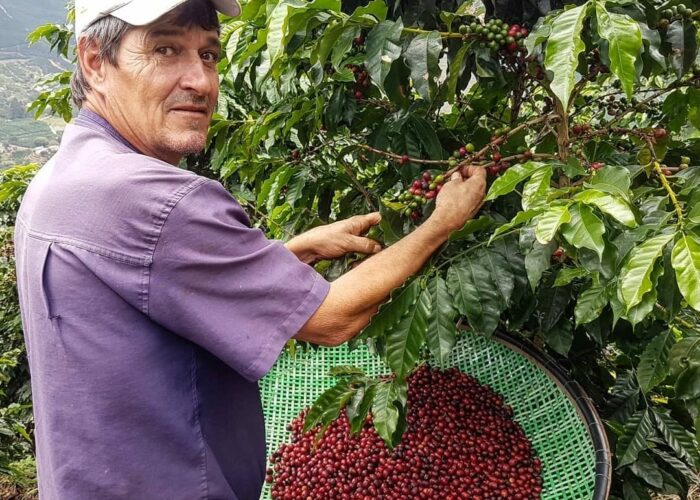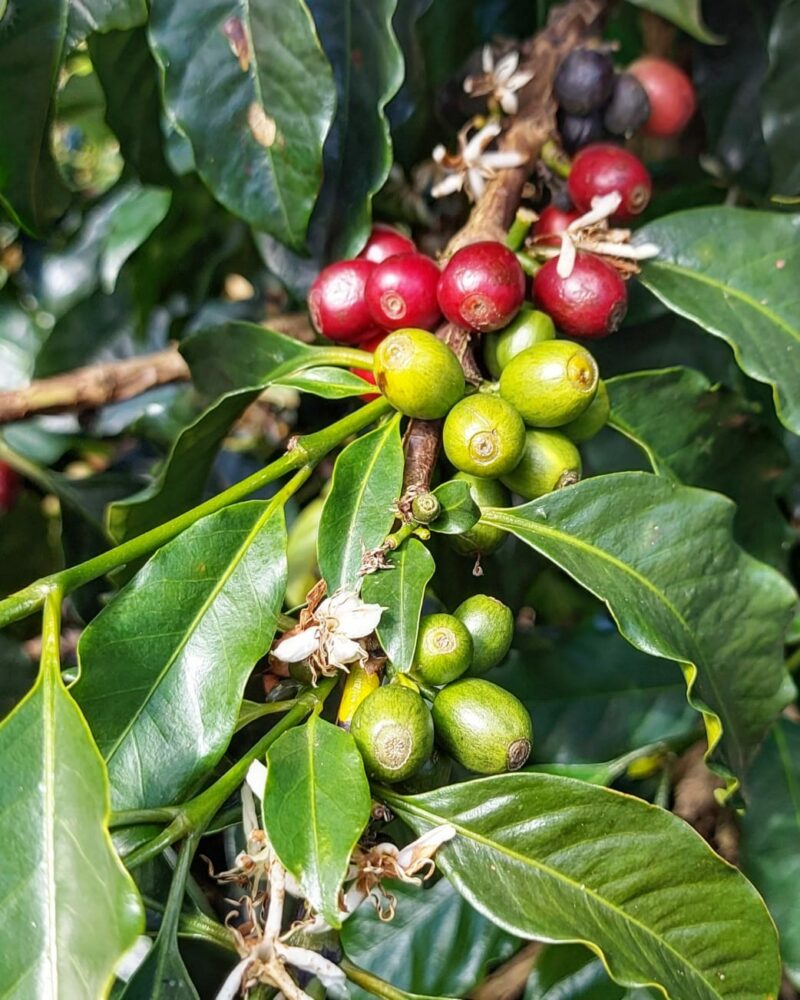Coffee farms Sitio Vargem Grande and Café Galante are in a mountainous region with humid air. The moist air prolongs the drying process of coffee cherries, which boosts the quality, as the sugars present in the coffee have more time to ferment.
In their natural process, after the coffee is harvested, it dries on a concrete floor for 20-30 days. Then, it is used in an artificial electric dryer to finalize the drying process until the coffee reaches 12% humidity. They also dry coffee under the shadow of a greenhouse and in African beds covered with cloth to protect them from the cold.
Sitio Vargem Grande has 18 hectares and Sitio Café Galante has 14 hectares. They both produce Red and Yellow Catuaí, CatuCai, and Yellow Caturra.
Renato Assumpção is the youngest producer from the last generation, the son of Mrs. Aparecida dos Santos, who is already a Q-Arabica Grader. He cups the coffees of all families, and it helps them to identify which varieties have more significant potential in each crop. They are all part of a group of producers of the same family who support each other. Each one has different tools and types of equipment used in coffee processing, like a washing tank, pulping machine (which controls the level of pulp for the honey process), and barrels for fermentation.
30% of their crop is hand-picked, and 70% is partially manually picked (with manual tools). Still, nothing is harvested with harvesters due to the inclination/geographic position of the land, in high altitude, which also contributes to quality as, in this way, they can pick only extremely ripe cherries. The family shares knowledge among the group, combining their processing methods to achieve the best results.


